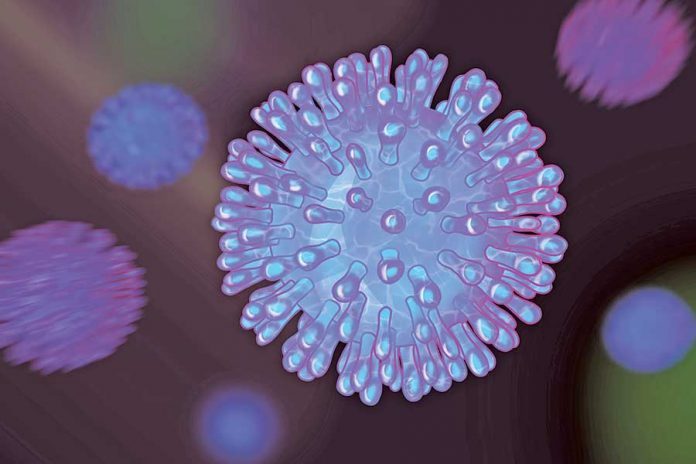Penn Nursing — ranked as the best nursing school in the world — has received a $100,000 grant from the Robert I. Jacobs Fund of the Philadelphia Foundation for HIV research. The grant is for an investigation led by one of the top local experts in the field of HIV research, Dr. José A. Bauermeister. Bauermeister is a presidential professor of nursing and director of the Program on Sexuality, Technology and Action Research (PSTAR) at Penn Nursing. He also serves in the National Institutes of Health on Sexual and Gender Research.
At Penn Nursing, Bauermeister works with students, colleagues and community partners to identify innovative strategies on sexual health promotion and intervention as part of the PSTAR. The program offers research opportunities to address LGBT health disparities as well as those for sexual and gender minority (SGM) people.
Bauermeister also leads the Penn Center scientific working group Leveraging Technology to Reduce HIV Disparities. This group aims to speed up research into HIV prevention and care by building a community of researchers and scholars invested in addressing HIV disparities.
The study to be funded by the Philadelphia Foundation is concomitant with Bauermeister’s other work and is titled, “Youth-driven Perspectives in HIV Biomedical Prevention and Cure Research.”
Bauermeister has devoted much of his research to issues related to minority youth and HIV. His research “integrates perspectives from public health, social science, medicine and human sexuality to create interdisciplinary strategies to curtail HIV disparities among sexual and gender minority adolescents and young adults.”
In the new study, Bauermeister will focus on Black and Latinx teens and young men. Adolescents and young adults (ages 15-24), particularly Black and Latinx gay, bisexual and other men who have sex with men (YGBMSM), are disproportionally infected with HIV in the U.S.
“If we are to achieve the ‘Ending the HIV Epidemic in the United States by 2030’ initiative goals,” Bauermeister said, “investment in systems-level interventions, digital strategies and biomedical technologies will be necessary to optimize HIV prevention and care delivery for sexual and gender minority youth.”
Although daily oral Pre-Exposure Prophylaxis (PrEP) has been proven to be able to eradicate HIV, the use of PrEP and adherence to the regimen has been limited among this group of teens and young men. Bauermeister’s investigation will highlight the need to continue developing and promoting alternative biomedical HIV prevention strategies to reach this group.
Bauermeister’s study seeks to highlight sexual minority youths’ perspectives on the design and delivery of next-generation HIV prevention and cure biomedical products. Key to this project is the integration of a team of Philadelphia-area youth co-investigators who will be hired and trained to participate equitably with the Penn research team on this initiative.
One area of expertise Bauermeister’s work has focused on is large biomedical clinical trials focused on developing new biomedical HIV prevention technologies for use locally and globally.
Bauermeister has described his work at Penn Nursing in the context of the development and use of PrEP, explaining that “developing and testing additional HIV prevention technologies in the form of douches, vaginal rings, gels, inserts and injectables and other technologies could serve as prevention alternatives to barrier methods (e.g., condoms) or systemic prophylaxis (daily oral-delivered PrEP) for men and women around the globe.”
Bauermeister uses participation methods to ensure that new biomedical HIV prevention solutions being developed are ultimately acceptable and fit the lifestyles of those most impacted by the HIV/AIDS epidemic. He has worked on a series of trials that examine how social and behavioral factors influence the acceptability, tolerability and adherence to new protocols. Currently, he serves as Protocol Chair for DESIRE (Developing and Evaluating Short-acting Innovations for Rectal Use), a five-country protocol that systematically examines SGM youths’ preferences in delivery options for new medications and prophylaxis (fast-dissolving insert, suppository, douche) for the future delivery of drugs to help prevent HIV/STI when engaging in receptive anal sex. He also serves as protocol chair of a novel Phase I clinical safety trial examining the acceptability, tolerability and safety profile of a PrEP douche among adolescent and young adult men.
There are currently 1.1 million people with HIV in the U.S., and the majority of new cases of HIV are among gay men and men who have sex with other men who are under the age of 30. Examining what works and does not work for these teens and men in terms of prevention techniques and medications is critical to minimizing the rate of new cases of HIV.
“We thank Philadelphia Foundation for its support of this important research,” said Bauermeister. “Through this initiative, we will ask Philadelphia youth to help create and analyze the data and propose youth-driven policy recommendations for true social transformation within HIV biomedical research.”
